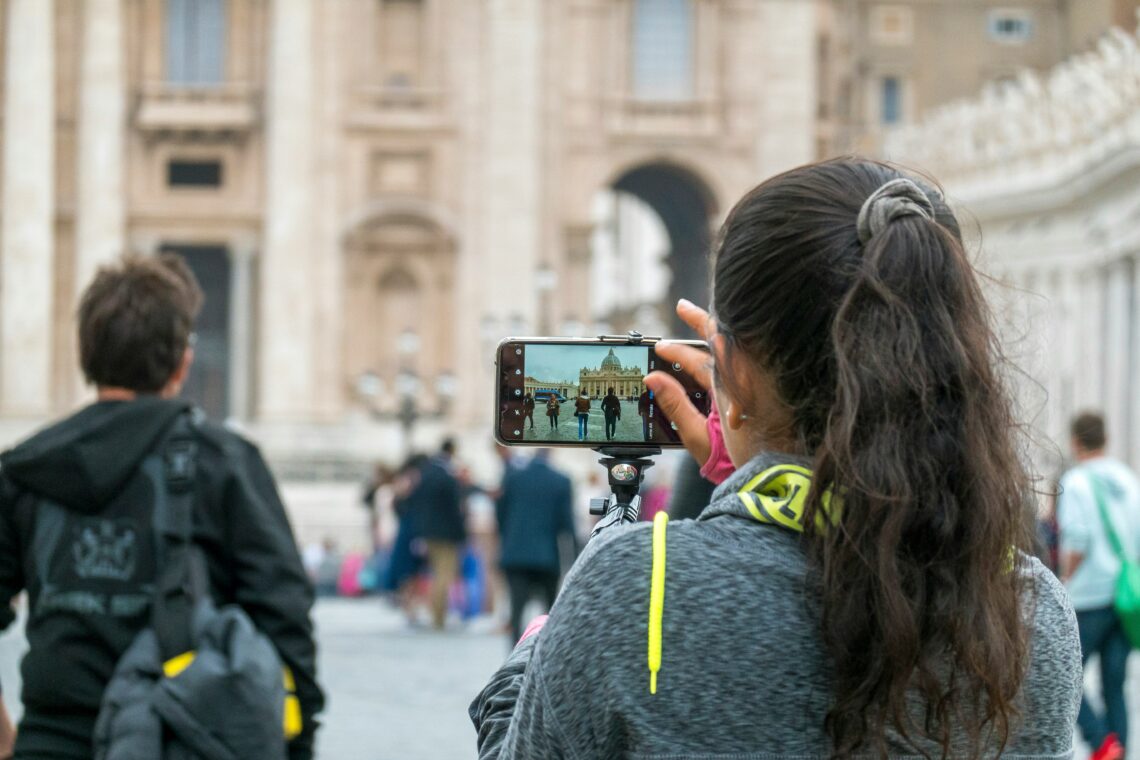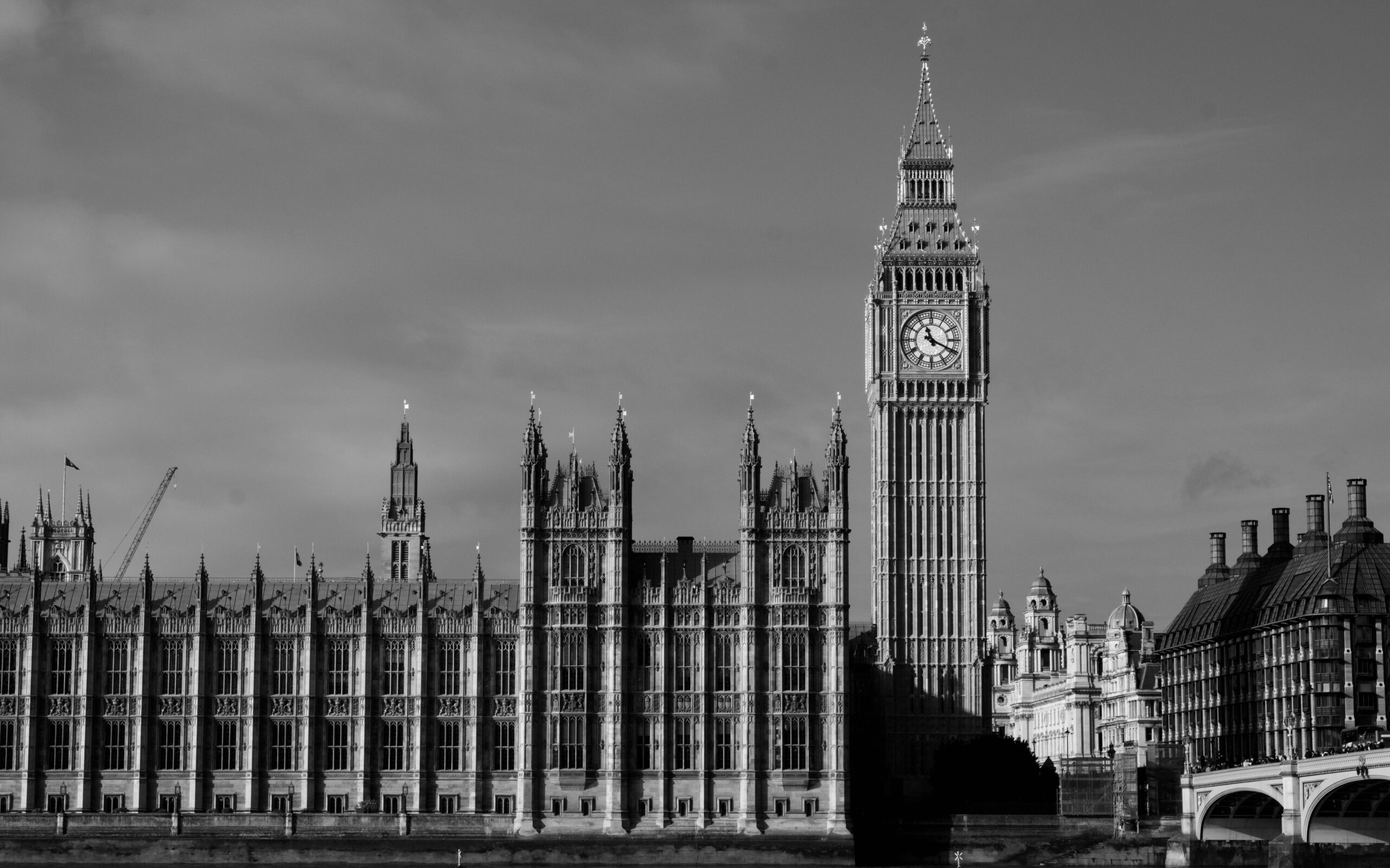
How to stop the West from falling apart
Jenny Sinclair believes that Catholic Social Thought can save us from the social fragmentation which is afflicting the Western world.
The framework of Catholic Social Thought causes us to ask questions about our political economy – that is, the arrangements which affect our daily lives, like wages, the way money is regarded, the state of the world of work, and so on.
It requires us to critique any system that is dehumanising, whether it is a system that privileges profit over dignity, or whether it centralises power through the impersonal state. We are to work for an economy founded on the humane treatment of workers and the dignity of work.
This tradition calls out systems that degrade the human being and calls for reform, not by imposition or revolution, but by the democratic process. Not by centralising power to the state, but by distributed power.
So what do we see? What are the most obvious symptoms? We see that young people can’t afford a home, that birth rates are declining, that social trust is breaking down. What else do you see where you are? We need to look locally this is very important.
But also we need to zoom right out and see the bigger picture. In a time of seismic change many of the assumptions we might carry – political, social – may be out of date. This is a time of intense political confusion – there are competing ideologies at work. The wisdom of Catholic Social Teaching helps us understand what is going on.
It is all too easy to run the risk of becoming what Lenin called ‘the useful idiots’ if we make the wrong call, and in so doing, inadvertently prop up an unjust system.
Change of era
Just over eight years ago, Pope Francis said we are not entering an era of change but a change of era. Every era is characterised by a particular philosophy and that philosophy shapes the ‘political economy’ – these things are always shaped by ideas.

The animating idea of the current era that is breaking down comes from the philosophy of liberalism whose roots are in the Enlightenment. Some of that legacy has been very positive but in the last 45 years or so it morphed into an ideology known as neoliberalism.
A Catholic Social Teaching reading reveals the flaws in this legacy.
It tells us our system is founded upon a false anthropology – a desiccated, soulless conception of the human being, which in turn generates the idea of ‘the unencumbered self’ and a false idea of freedom, freedom from constraint.
In its extreme form, this philosophy conceptualises family as a constraint, and tradition, accountability and mutual obligation are seen as obstacles to progress, relationship to place is reframed as old fashioned.
How different is this from a Christian anthropology where human beings are seen as transcendent, relational beings, made in the image of God. This so-called ‘neoliberal’ philosophy shows up in economics and in social and moral forms. Its flawed anthropology explains why the systems it generates turn out to be inherently unstable.
Neoliberal economics
The neoliberal economic model generates prioritises shareholder interest and the pursuit of profit maximisation over everything else. These goals ushered in the system of globalisation. The ‘cost of living crisis’ is simply the name of the latest example of a wider crisis unfolding across the West.
Catholic social teaching shows us that when finance capital dominates it has a tendency to dehumanise and commodify human beings and the natural world.
It does generate wealth of course, but unless it is constrained, it tends to exploit.
It requires units of labour (that’s us, human beings) to be cheap and mobile. The insistence on having to move to find work used to be seen as right-wing but is now rebranded as ‘freedom’.
This transactional ‘freedom’ brought prosperity for some but it broke parts of our country. Investment moved out of certain areas and this caused civic and spiritual degradation. It drew the brightest and the best away from their places of belonging to the big cities. This financialisation affects people’s lives.
Politics
This was in fact a politics of abandonment. It was a breach of the common good. Successive British governments from both left and right have over the last forty years perpetuated this system. None have had the political vision to challenge the power of finance capital. There is no sign that this will change in the forthcoming election.

After decades of no sign of reform of this economic system, the so–called ‘left behind’ had enough of this liberal domination and mismanagement. They literally had nothing to lose. Their reaction was framed by big money interests as ‘populist’ but in previous eras it would have been understood as a peasants’ revolt.
Social consequences
But this philosophy generates not only economic but social consequences. Its culture of self places rights above responsibilities, which is effectively an assault on relationship. For example, we are encouraged to outsource more and more the things we used to do as communities – child care, care of the elderly – generating conditions that lead to pathologies such as family breakdown, atomisation, the fragmentation of communities, spiritual confusion.
Every country that has followed this system is seeing the same effects. The motivation of this spirit is anti–human which is why the system is now unravelling. We can see this happening in multiple sectors which often are regarded as disconnected but in fact stem from the same source. Perhaps you see signs of this around you where you live.
Malign culture
We see it in low productivity, low wage high welfare economies, in extreme inequality, in massive public and private debt. We see it in the collapse of trust in institutions, in the disconnect between the managerial class and the governed, in the weakening of democracy, the subordination of the local by digital culture, in degraded local infrastructure, in sclerotic health systems, in the atrophy of local forms of human association.
We see it in climate warming and the displacing of communities, we see it in the liberalising of abortion and euthanasia, in the commercialisation of surrogacy, the promotion of conditions needing lifetime medications, in the normalising of cosmetic surgery, in organ harvesting, sexual exploitation, human trafficking.
We see it in the erosion of social trust, in social fragmentation, in culture wars, in the emergence of political extremes on the right and the left. And not least, we see it in symptoms of human distress – like rises in loneliness (in fact more prevalent among the young than the old), in rises in addiction, self–harm, depression and nihilism, in the tyranny of social media culture which sells a false idea of freedom and self–actualisation through a competitive and dehumanising matrix of likes and image manipulation.
This is what Francis means by ‘malign culture’. He says this culture is indifferent to the realities of the poor.
Malign culture, he says, is focused on the avoidance of suffering, the exaltation of physical qualities, where virtual reality takes over real life and eclipses real local culture.
He stresses that the younger generation are the most vulnerable, and are made to think they are losers, causing frustration and suicide, introducing illusions about the meaning of life.
Toxic cycle
There is a toxic cycle at work producing poverty in both economic and social terms. And so now we have a low wage, high welfare economy, with increasingly precarious and meaningless jobs rewarded with wages too low to live on, subsidised by the public purse making up the difference.

The consequences include massive debt, both public and private. We are drawing skilled low paid workers away from their own countries and families to prop up our economy, while a shocking 5.2m people are abandoned on out of work benefits.
In social terms, this dysfunction generates social problems requiring more welfare expenditure, which in turn requires more state intervention which, because it is overcentralised and non-relational, generates more pathologies – and on and on.
At the heart of this is an increasing complicity between finance capital and the centralised technocratic state, where governments collude to insulate the interests of big corporations from democracy, undermining human agency and the common good. We can conceive of this corrupt alliance as the ‘principalities and powers’ of our day.
Spiritual consequences
These powers both subordinate the transcendent to the material. The primacy of God is subordinated to man. This is where the system has moral consequences. It leads to the breakdown of morality. The human being seems more powerful than God, generating a cult of self – this is why we see the emergence, on both the extreme left and the extreme right, of identitarian politics, with its distorted forms of victimhood, and the battle of rights which we see in the culture wars.
This denial of God subverts natural law and generates an anti–human system which generates poverty in all its forms: economic, relational and spiritual.
Our posture needs to be pro-human, to uphold human connection.
It is hard for us in the West to get a perspective on this but African Christians provide a valuable insight. Recently on our Leaving Egypt podcast, Harvey Kwiyani, a missionary from Malawi here in the UK, describes what he sees as a ‘functional atheism’ in the West, where even Christians do not expect God to be at work.
Unlike many Africans who have still retained a natural awareness of God, we have lost that fundamental assumption about the reality of his existence. It’s helpful here to appreciate the sacramental reality of the two realms, the earthly and the heavenly. Each realm has its own worldview and we have to choose the right one.
As Moses said to the Israelites leaving Egypt, we should choose freedom in God, not the false freedoms of the machine. The machine deceives and unravels. Meanwhile God builds relationships.
Now the era of globalisation is coming undone. The Russia–Ukraine war exposed its inherent instability and destabilised its Atlanticist power base. Disturbance to global supply chains caused inflation, and, increasingly, non-Western countries are rejecting Western hubris and forming new alliances. The old era is giving way to a new world order, whose character is unknown. In this unfamiliar territory, we can already see authoritarian, technocratic and less democratic tendencies taking hold, even in our own country.
Building common good
We may have to face the oncoming era with a sense of tragic realism. But also, amidst overwhelming challenge, we can see why Pope Francis is calling for a culture of encounter. It is not just rhetoric – he is calling the People of God to bring us back to the ways of the early church in the book of Acts.
He is calling us to a radical behaviour change, to become a relational, listening church, equipped to resist the principalities and powers by joining with God in his mission to transform the world. To protect society, local relationships are going to become more and more important.
Catholic social teaching recommends not only one to one’s but strengthening the family and local institutions (such as unions, churches, associations and local business). It also calls for constraints on capital (for example by turning six big, centralised banks into many regional banks) and distributing power: like renewing democratic processes at regional and local levels, shortening food and energy supply chains, and introducing new forms of local accountability.
But this is not just about national politics, it’s about what we can do in the local, in the places where we live. Geopolitically, God’s mission comes at this critical moment for a very good reason: it’s not to save the Church for its own sake. It’s to make the Church fit for purpose to heal the world.
This is an edited and abridged version of the second part of an address which Jenny delivered at a mission day organised by the Catholic diocese of Clinton, Bristol, England, on 18 May 2024. For the first part, see here, and for the full version, see here. It is republished in Adamah with the author’s permission. To listen to the T4CG podcasts, click here.
Like what you’ve read? Consider supporting the work of Adamah by making a donation and help us keep exploring life’s big (and not so big) issues!
Jenny Sinclair
Jenny Sinclair is founder and director of Together for the Common Good, a Christian charity dedicated to spiritual and civic renewal. Drawing on Catholic Social Thought, she works with leaders, churches and schools, helping them make sense of this time of seismic change and discern their unique vocation for the common good. www.togetherforthecommongood.co.uk

